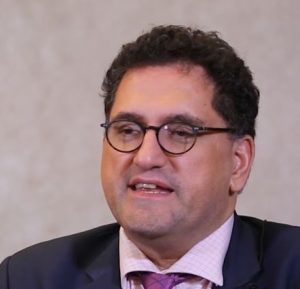We have seen that troponin increases with age in presumably healthy individuals, both in men and women. And there are studies, including a sub-study from the TRAPID-AMI study, that show that there is a substantial reclassification of elderly patients into a non-infarct by use of age-specific cut-offs. And, there is also a small prognostic role of age-specific cut-offs in men and women.
However, if you optimise your cut-offs by age for rule-in and rule-out of infarct, then you will miss the importance of troponin for risk stratification. And my own opinion is that increasing troponin by age is not an age effect, but it’s a comorbidity-related effect that reflects an increasing cardiovascular disease burden. And by using optimised cut-offs, you will miss the opportunity for optimal risk stratification in elderly patients.


















